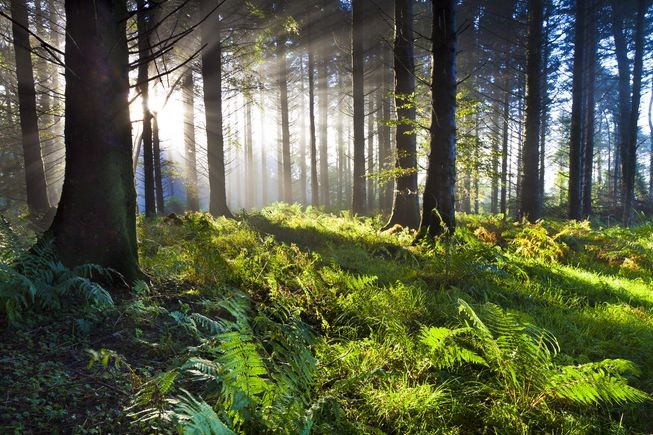Our social media editor Hilary Scheppers reflects on the importance of renewal and recommitment as an ongoing eco– spiritual practice.
Amidst the dense layers of the rain forest, there is a plant, the epiphyte, which is dispersed by birds or other mammals to sprout at the top layer of the canopy where sunlight is plentiful. Only after landing on the backs of other tall trees does the plant then begin to shoot its roots through the darkness toward the ground
Just as the epiphyte begins life “up in the air”, so
This time last year I underwent my own crisis as I spent months hiking the muddy rainforests of Peru, assisting in conservation research and, secretly, seeking total escape from my American life; I was much like the hanging roots, longing to be grounded. But in what? It wasn’t until I returned to
Since then I’ve found a literary refuge with EcoTheo Review, which has clearly rooted itself in two things: faith and ecology. But with this third print edition, our editorial team has planted itself further to the mission. Through the combination of efforts and talents across different time zones, our team combed through submissions, looking for writing that displaced the dirt, writing which determinately forced its tendrils into the darkness and worked underneath to reshape the landscape. A demonstration of true beauty formed in the collaboration
Inside you will find the nourishment of an interview with poet Li-Young Lee, the intriguing narratives of wildlife encounters in the wild and urban settings, poetry which contemplates “there is no half-life of sorrow when our children / inherit this toxic legacy” (Craig Santos Perez, page 36), and poetry which brightens our sense of wild like CT Salazar’s lines (page 52) “Even in the shape of a boy I can /wear the morning. Daisies behind my ear.”
We are called to remember what is possible when we take urgency and carry a light heart because we trust in God’s word and abundance. So I ask our community of readers and writers, how will you help us reassemble the landscape to make our habitat that heavenly ideal, to craft the writing that delights in creation and “orients” us to the light?
Where will you find your ground? How will you root down as a writer, educator or artist? Will you root yourself back to faith or an ecological community? Will you root yourself in the identity of Christ?
If you are feeling a little like the epiphyte, growing in multiple directions desperate for a nutrient-rich foundation, acknowledge that you sprouted first from the light. The light is your anchor, the first bind, without which you would never grow.
I hope you feel empowered by the words of encouragement enclosed: “listen harder / for the leaf / to twist, / to cut the air,” (Karen Leona Anderson, page 48). May this journal help you reconnect. There is space for you, there is space for everyone. Welcome home. The birds―and all of us―are waiting for you to root.




